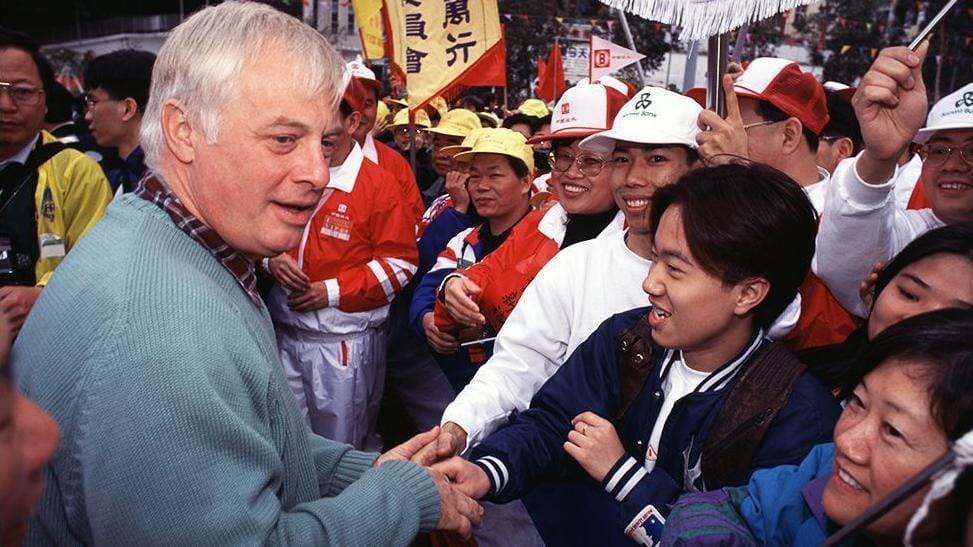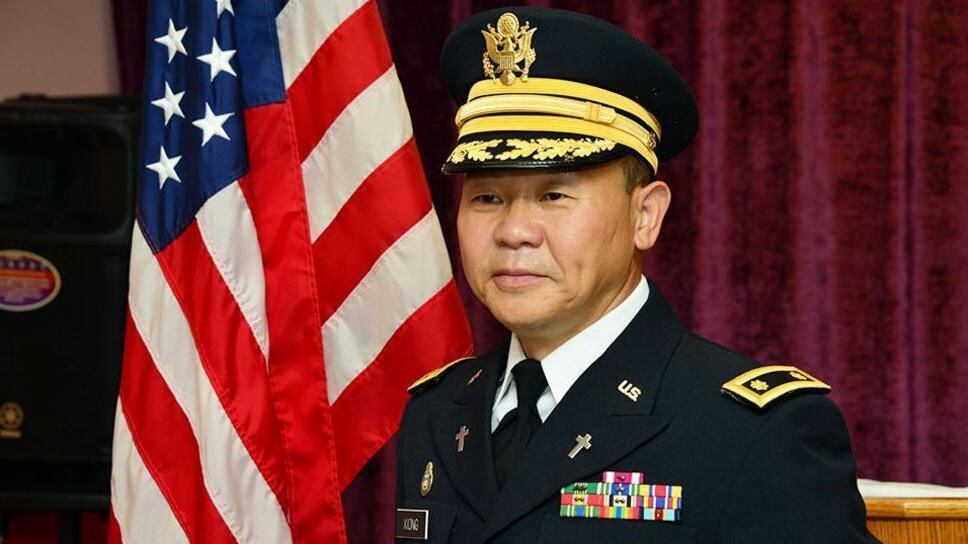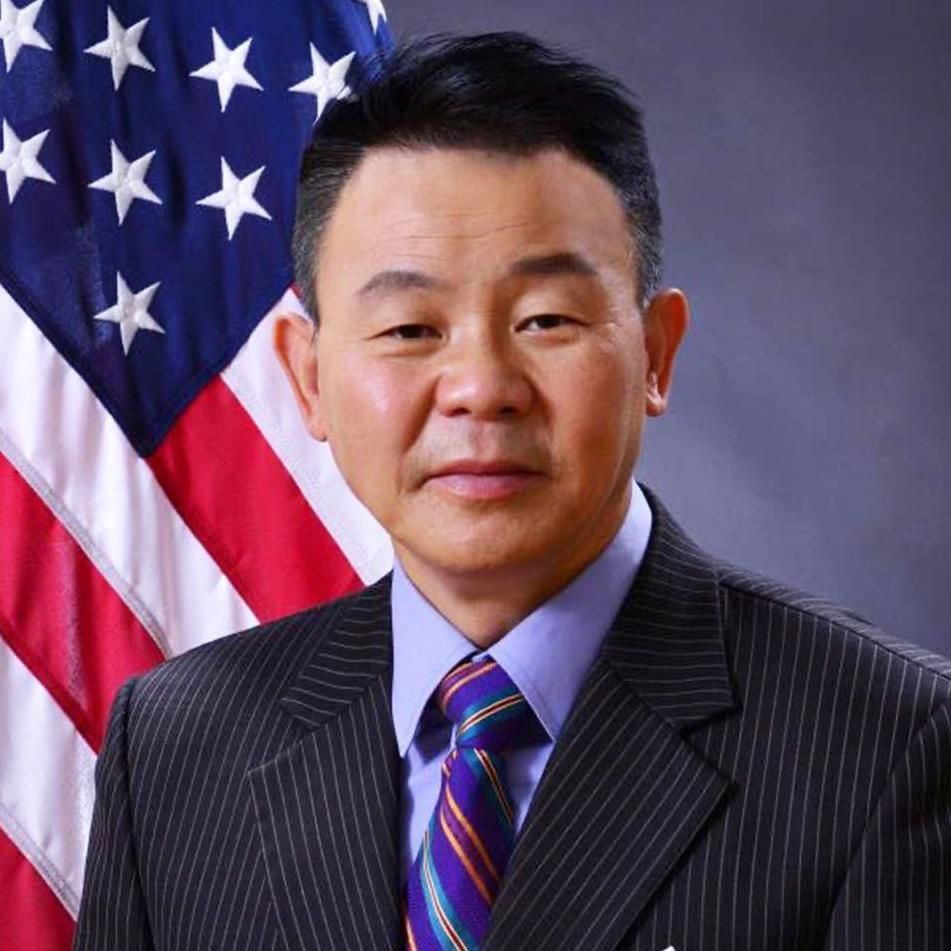Three decades ago, a secret operation called Yellow Bird smuggled dissidents out of China. But, as one of them told the BBC, Beijing is still persecuting them.
June 1992: It was midnight in the South China Sea and a Chinese patrol boat approached a ship heading from the communist country to the then British colony of Hong Kong.
LOOK: “It’s always a question of numbers here”: 8 figures that reveal unusual facets of modern China
When border troops came aboard to speak to the crew, a group of people crowded in a secret compartment below decks could hear their voices.
A few minutes earlier, when the patrol car was spotted, these secret passengers received an urgent order: “They told me to hide,” recalls one of them. Yan Xiong. “Do not make noise!”.
Most of those in hiding were economic immigrants who had hoped to find work in Hong Kong, but not Yan. He was a political dissident and if he were discovered he would be in serious trouble.
Yan was being smuggled out of China as part of a covert operation.
The patrol finally moved away, and in the early hours of the morning, Yan, who had never traveled by boat before that night, arrived in Hong Kong.
risky trip
After a hearty breakfast, he was taken to a detention center. He was told this was for his own safety. Walking the streets can be dangerous.
Being detained was nothing new for Yan. It had already happened 19 months in prison China for its participation in Tiananmen Square protests in 1989. The students called for more democracy and freedom, but the Communist Party sent tanks to crush them.
In late June 1989, the Chinese government stated that 200 civilians and several dozen security personnel had been killed. Other estimates range from hundreds to many thousands.
Upon his release, Yan headed to southern China where, in scenes that could have been taken from a spy film, he was sent from one public phone booth to another, to be put in touch with anyone who could get him out. . .
He was not the only dissident who undertook this risky journey. In conversation with the BBC, Chaohua Wang recalls his escape.
Despite ranking 14th on a list of the 21 most wanted people following the Tiananmen Square protests, he managed to evade capture, hiding in small rooms for months before traveling south and joining the secret Yellow Bird scheme. .
“It was as if a package was moved from a [persona] to another,” he says. “I didn’t even know the name Yellow Bird several years ago.”
Yellow Bird
Yellow Bird may seem like a classic espionage operation, and many believed that an intelligence service (MI6 or CIA) came up with the idea. But it wasn’t like that.
In fact, it was a private company carried out by groups of Hong Kong citizens motivated by the desire to help those fleeing. Among them were the local film and entertainment industry and (most usefully) organized crimein the form of triads.
“They had a lot of Chinese police in their pockets,” says Nigel Inkster, who was an intelligence officer based in Hong Kong at the time. This is what allowed them to take people out of their hiding places in Beijing and smuggle them across the border.

The UK and US only got involved when people arriving in Hong Kong needed to decide where to go next. Yan remembers a visit from who he describes as an “English gentleman” who never gave him his name but who helped him with the paperwork.
“You’d better go to the USA, not England,” said the man. A few days later, Yan was in Los Angeles. Chaohua Wang also ended up in the US.
Why not the UK?
Former officials told the BBC that Britain was reluctant to welcome the Tiananmen protesters because they wanted avoid upsetting China at all costs in the period leading up to the handover of Hong Kong in 1997.
The United Kingdom signed an agreement in 1984, but events in Tiananmen Square five years later raised difficult questions about Hong Kong’s future.
In 1992, just weeks after Yan’s arrival in the colony, former British Conservative minister Chris Patten became Hong Kong’s last governor.
He says he was determined to establish greater democracy, hoping it would last after the handover, and so he announced proposals for the democratic reform of Hong Kong’s institutions, aimed at broadening the voter base in elections.
There was opposition to the reforms not only from Chinese leaders but also from those in London who did not want to antagonize Beijing.
“My main responsibility was to try to give the people of Hong Kong the best opportunity to continue to live in freedom and prosperity, and to do so after 1997,” the former governor, now Lord Patten, tells me. He adds that he was also aware of Yellow Bird, but was not involved in the operation.
The reluctance to allow dissidents to come to Britain – and the anger in some quarters at Patten’s reforms – answers a central question from the 1990s that still matters today: How far should the West go to avoid angering China? and adapt to its rise, especially when it comes to values such as human rights and democracy?
Turn
Yellow Bird completed on the rainy night of July 1997 when Hong Kong became a sovereign Chinese territory. For some years, the freedoms that Patten tried to guarantee were maintained.

But in the last decade, China – under Xi Jinping – has taken a more authoritarian stance and tried to keep Hong Kong under control.
Yan He obtained American citizenship and lived a model life. HE joined the US army It is served in Iraq as a military chaplain.
He may have thought that the hand of the Chinese Communist Party could not reach him in his new home, but he was wrong.
In 2021 he decided to run for public office. He ran as a candidate in the Democratic primary for New York’s 1st Congressional District.
Yan began to notice some strange things during your campaign. Strange cars followed him and lurked outside where he was staying at three in the morning. At campaign events, the People tried to stop him from talking.

He found out what was going on when the FBI came to talk to him. An American private investigator told them that an individual in China approached him and asked to keep an eye on Yan. It seems that the idea of a former Tiananmen protester entering the US Congress was unacceptable.
“I specifically told our private investigator that they needed to undermine the victim’s candidacy,” said FBI agent Jason Moritz.
The FBI was able to monitor developments when the China-based individual proposed to the investigator to dig up Yan’s dirty laundry. And if he couldn’t find one, he ordered him to invent one. If that didn’t work, he suggested giving him a spanking or even simulate a car accident.
“They wanted to suffocate and end my campaign,” explains Yan.
The person who instructed the private investigator, as assessed by the FBI, worked on behalf of the Chinese Ministry of State Security. The conspirators were charged but could not be arrested because they were outside the US.

China has consistently denied accusations of political interference. But this is not the only case in which it has reportedly become more assertive in locating those it considers dissidents in other countries.
There were complaints of “overseas police stations” in the UK and US and of people pressured to return to China or remain silent.
Yan’s story reveals that as China became more secure and controlling at home, it also sought to expand its reach abroad. And this is causing more and more friction over issues of espionage, surveillance and human rights.
However, Yan’s message to Western governments when dealing with China is simple: “You have to be careful.”
Source: Elcomercio
I am Jack Morton and I work in 24 News Recorder. I mostly cover world news and I have also authored 24 news recorder. I find this work highly interesting and it allows me to keep up with current events happening around the world.

:quality(75)/cloudfront-us-east-1.images.arcpublishing.com/elcomercio/TZIXUZ7DBZFXFP3FNZFEQNMOYI.jpg)





